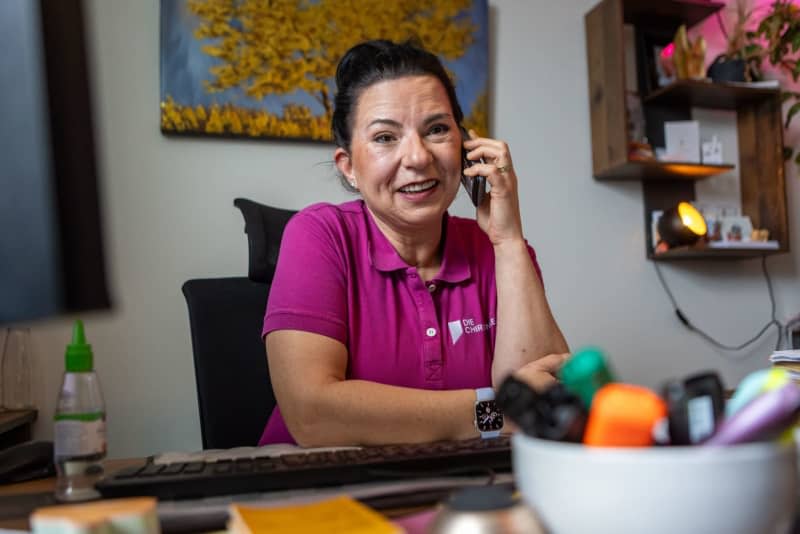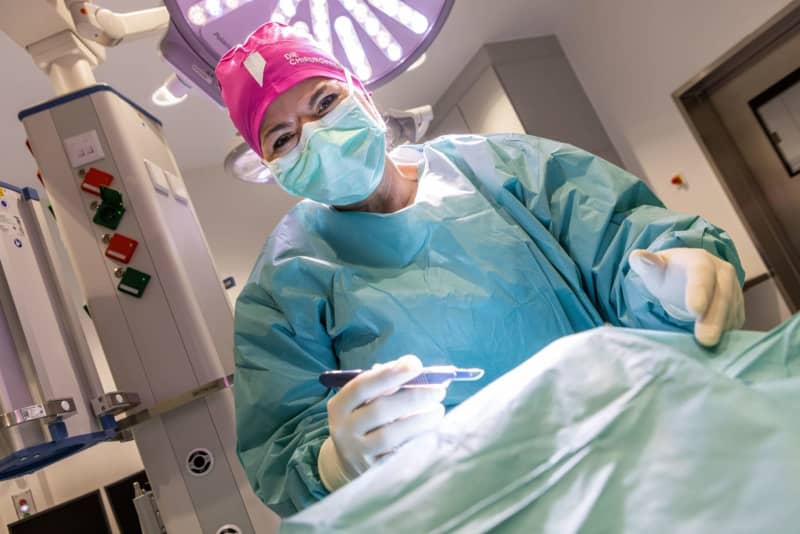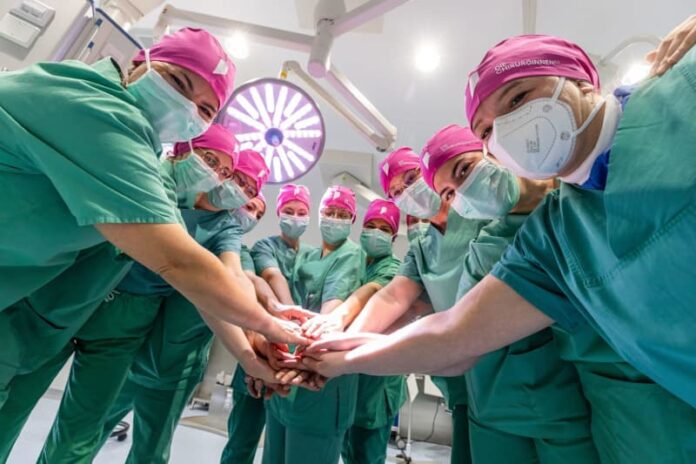A female doctor has visited her patient in their hospital room diligently every day post-surgery, yet the patient complains: “No doctor has been in all week!”
Katja Schlosser, medical director of the Agaplesion Mittelhessen hospital in Germany and president of the female surgeons’ association, lists many examples of how the few women who work as surgeons fare on the job.
In her career, she has been “the first” or “the only” woman in most positions, she says.
Surgeons who are pregnant are no longer allowed to go into the operating theatre, and can only do administrative work, she says.
“The path to the top, where you can operate and make decisions independently, is still very rocky for women,” says Schlosser. “The profession is patriarchal.”
According to the Federal Statistical Office of Germany, about 70% of all students enrolled in human medicine are women. However, only some 20% of them are studying to become surgeons, the German Medical Association reports.
Three years ago, some women founded the female surgeons’ association in Marburg, a town some 80 kilometres north of Frankfurt, to make sure it doesn’t stay that way.
The first Zoom meeting was attended by 20 women, and the circle grew rapidly via word of mouth.
Soon there were too many participants for a WhatsApp group, so the women had an app built. Today, the association has almost 2,000 members.
The association hosts forums where female surgeons can exchange ideas, ask for advice, give tips, and network. There is also a mentoring programme and some scholarships are also offered.
There is a trouble-shooting team and a night shift chat. “I never expected it to go through the roof like this,” says Schlosser.
The goal of the network is to “encourage women to dare to take chances,” says the surgeon. Her own experience is, “It’s no use accumulating more and more expertise. You also have to promote yourself.”
She thinks that so few women make it to the top because there are too few role models for female surgeons.
Schlosser is convinced that women are great at networking in their private lives, but not so much at work.
Through the association, women can meet others whose life path is similar to theirs, she says.
The association’s aim is also to get more women interested in surgery and motivate them to stick with it, even during crises or when they are having children.
Sometimes this leads to life-long friendships, Schlosser explains – like the two female surgeons who were matched as mentor and mentee via the network and then met for the first time in the delivery room.
The fact that women are specifically networking is nothing new. The German Medical Women’s Association (DÄB) is celebrating its 100th anniversary this year. An enormous amount has changed for women in general and female doctors in Germany since then, it says.
For example, the DÄB cites that part-time work is now recognized as part of official training. But many issues still remain.
In healthcare policy, the DÄB calls for family-friendly working conditions in hospitals and private practices.
It is also calling for more women in leadership positions. According to a DÄB study, only one in 10 management positions in university medical faculties is held by a woman.
The members of the female surgeons’ association emphasize that they are not suggesting that women make better surgeons than men.
However, “women can do [it] just as well as men, and no one needs to be afraid to put themselves in the hands of a female surgeon,” says Schlosser.
She says it’s not only male colleagues but also some patients who have less confidence in female doctors.
To combat these beliefs, the association has had badges made that read: “I am on medical rounds.”
The pins, a symbol of competence and inclusion, are so popular that they are constantly being reordered, she says.





